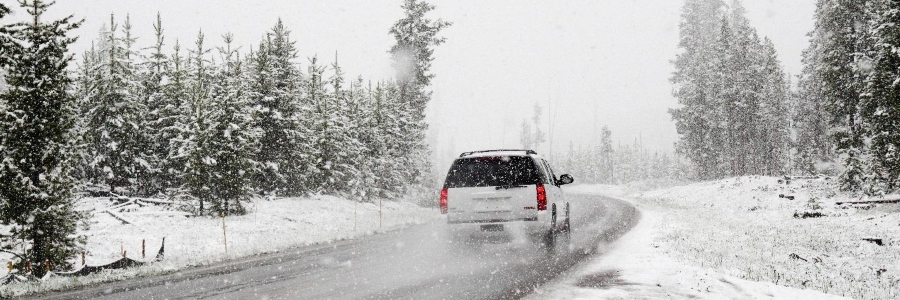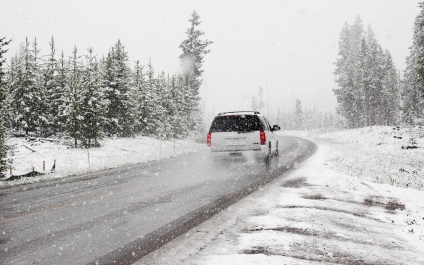
Whether driving or flying, winter storm conditions can affect plans and cause hazards along the way, causing icy roads, cancelled flights, and everything in between. Annually, 60,000 flights get cancelled due to winter weather (Business Insider). And in a 10-year period, icy roads caused over 150,000 car crashes (Federal Highway Administration). The most important goal of all travel is to arrive at the intended destination safely. Those who travel frequently for work know that work does not slow down when winter weather hits, yet many people are unprepared for safe travel this winter.
The team at Alliance Solutions Group (ASG) travels often for business, and we want our team members to stay safe during the November to March peak period. We teach our team members the skill of risk assessment—identifying potential hazards and analyzing the effects if the hazard occurs. And we developed a 3-step process, known as ACT, to help assess risks. To ACT, you must:
- Assess the situation or hazard at hand
- Consider what actions you can take
- Take the action and follow through with your plan.
Here is an example: Two days before departing for a domestic flight on business, you check your local weather and determine that heavy snow is forecasted for your area the day of your flight. You assess your route to the airport and determine that you cross several high-traffic, high-hazard areas if icy roads do occur. You check with the airline, and find that you can move your flight a day earlier to avoid the winter storm. This inconvenience means you will add a day to your trip, however, based on your assessment, you decide to change your flight to avoid the greater inconvenience of cancellations or delays.
Preparation is one of the best tools when it comes to winter weather. There are several tips you can follow to become a better informed, better equipped traveler.
When driving:
- Keep an emergency kit in the trunk of your car, containing a snow scraper, a flashlight, batteries, a blanket, a first aid kit, and nonperishable food and water.
- Monitor weather conditions along your route for several days leading up to your trip.
- When driving on icy roads, reduce speed by as much as 50%, and increase following distance to lessen the chances of a collision.
- Inspect your rental car before departing the lot for tire condition, windshield clarity, headlight operability, and a snow/ice scraper.
When flying:
- Avoid connecting flights when possible to avoid becoming stuck due to a cancellation. If you must connect, try to go through a southern airport with a lower chance of winter conditions.
- When connecting flights are necessary, book earlier flights to avoid the last flight out of your connecting city in case your first fight is running behind schedule.
- Check for severe weather alerts at your departure and arrival destinations, as well as your connecting cities.
- Check with airlines and airports for any delays, cancellations, or closures. Ensure that the airline has your contact information so they can inform you of changes.
- If checking a bag, carry some necessities in a carry-on bag in case a connecting flight is delayed, and you become separated from your checked bag.
To learn more about how ASG can provide solutions that keep you prepared and help manage risks, visit https://www.asg-inc.org/ or call 757-223-7233.
Don't worry, no spam here!
Keep up to date with the latest trends, best practices and innovations in the Emergency Management and Environmental, Health and Safety sectors.

